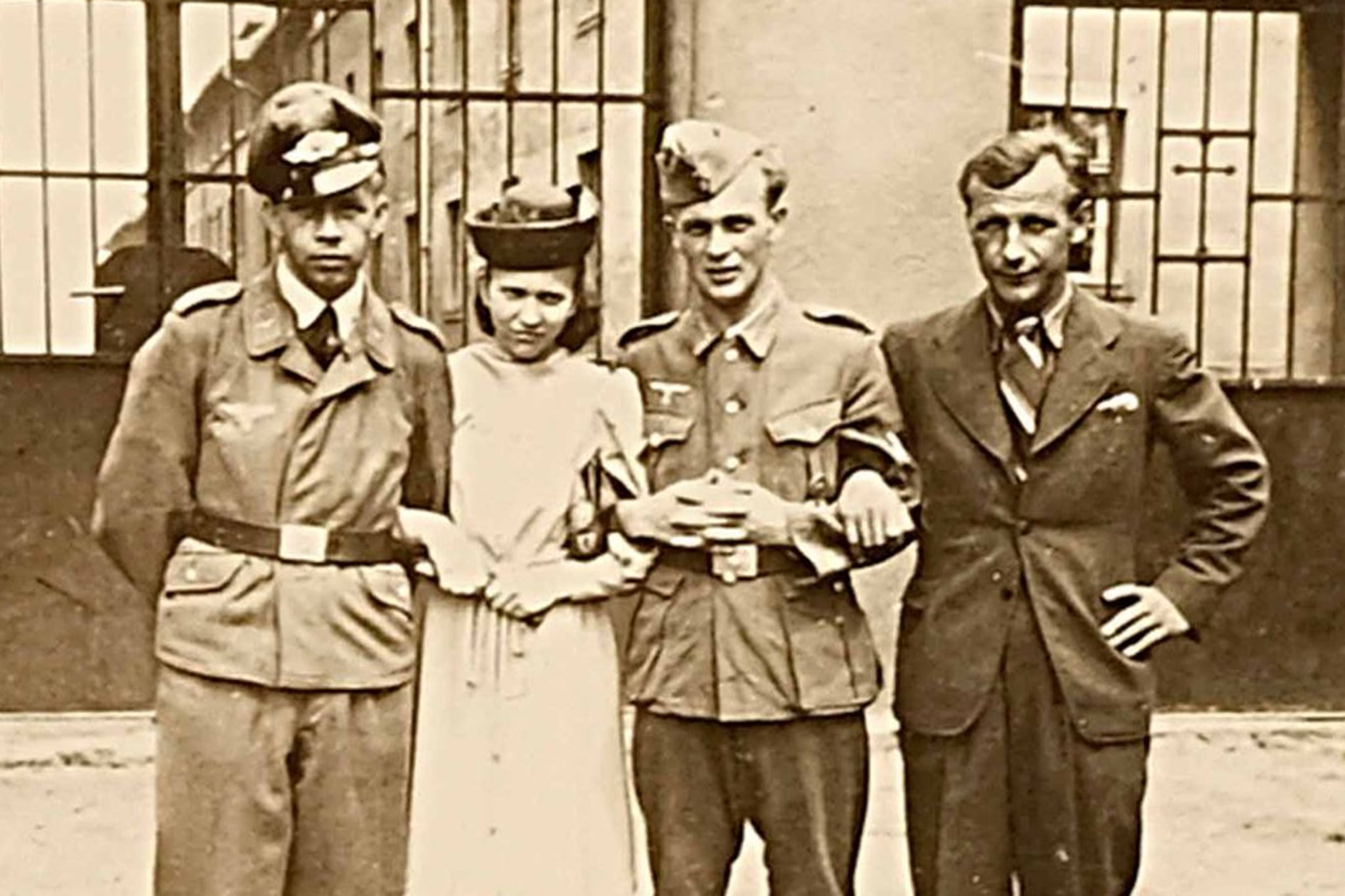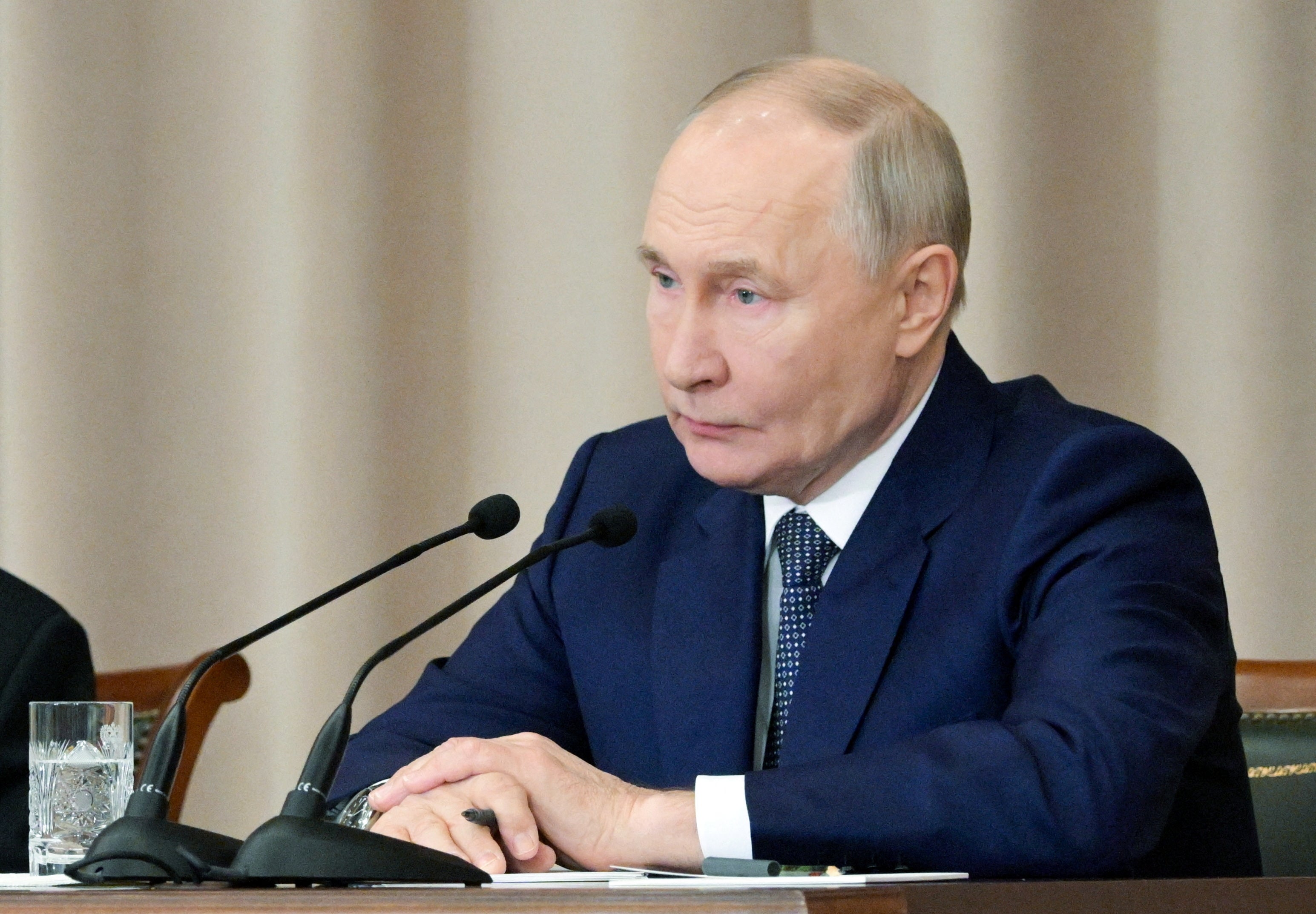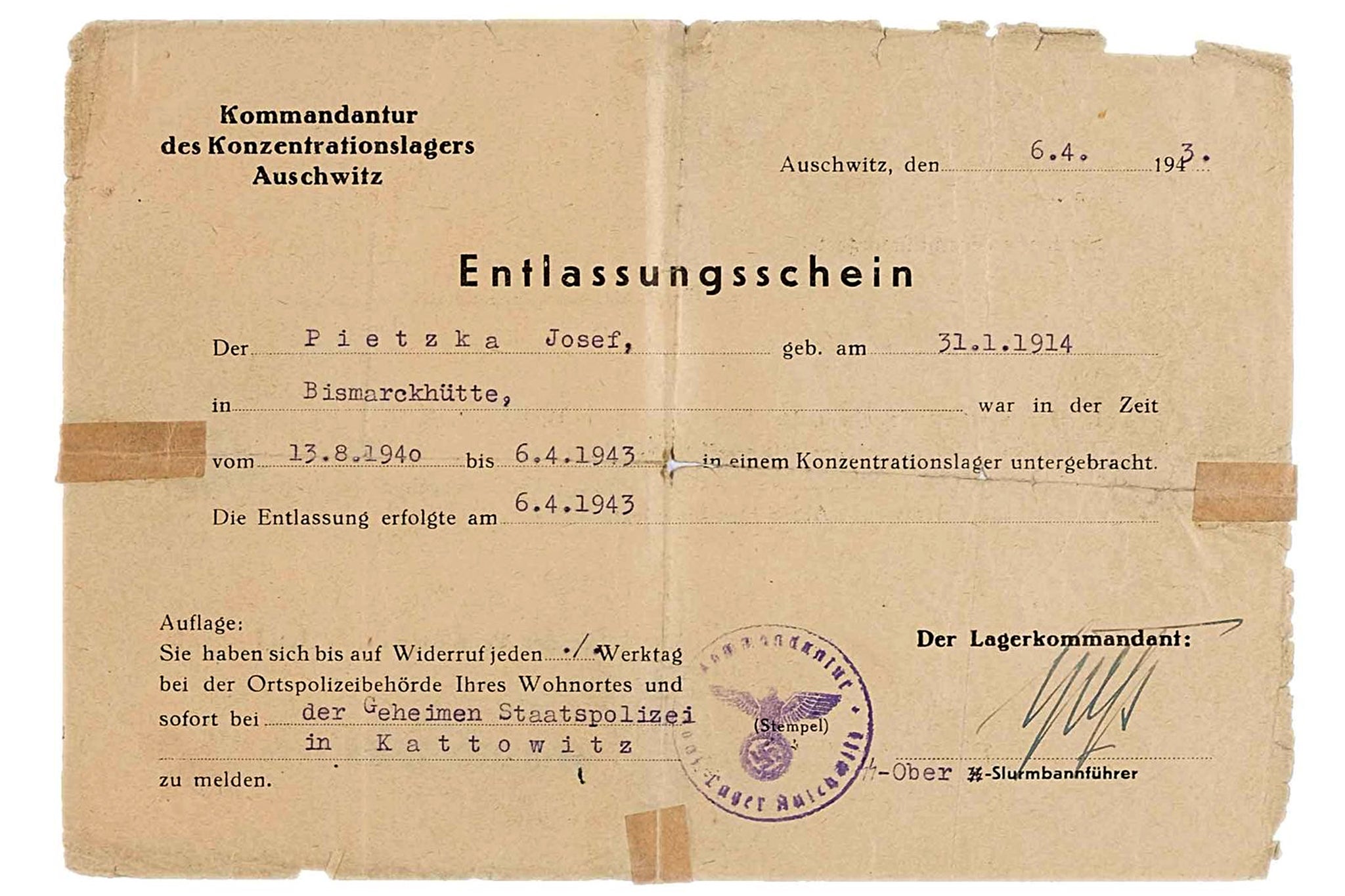Why Putin’s Nazi smears on Poland and other nations spell more than a war of words
Recent documents released by the Russian Federal Security Service (FSB) have suggested a Polish prisoner of war in Auschwitz happily did the dirty work of the camp’s guards. It is the latest worrying example of how the Russian leader is weaponising the Holocaust to destabilise and disrupt neighbouring nations, writes Guy Walters

There have been many propaganda pawns in Russia’s war on Ukraine – and indeed on the West – but none cuts a more unlikely figure than Józef Pieczka. What makes him more unlikely still is that Pieczka is no longer alive, his date of death uncertain. But what we do know about him is that he was registered as a Polish political prisoner on 13 August 1940, and that he was assigned number 1493 at his camp. That camp was Auschwitz.
According to documents recently released by the Russian Federal Security Service (FSB) and published on its website, Pieczka was a kapo – a prisoner functionary who was given the duty of supervising his fellow prisoners. It was an invidious position to find oneself in, and often those who did were forced to behave with great cruelty to other prisoners. According to the FSB, in a series of interrogations carried out by the Russians in 1945 and 1946, Pieczka supposedly admitted the following:
“I often had the opportunity to escape from the camp, but I did not do so because I did not find it necessary to escape, since being in the service of a non-commissioned officer and a kapo, I did not experience the difficulties of camp life.
“On the contrary, I lived well there, I was the boss and the absolute master over the lives of the prisoners … As an overseer, I daily accompanied and was present at all work performed by my prisoners and, armed with a stick, systematically beat them for working slowly and reluctantly ... Every night, my group alone brought from 100 to 500 corpses of killed people to the crematoria.”
So why is the FSB delving into its archives and publishing this now? Why the sudden interest in history? The answer lies in the fact that Pieczka was a Pole, and his actions – if indeed he did carry them out – help to prove, in the eyes of Vladimir Putin and his stooges, that the Poles were complicit in genocide.
It is a narrative that will be familiar to Ukrainians who have been used to Putin repeatedly making baseless claims about a "neo-Nazi regime" in Ukraine as a justification for Russia’s invasion of the country. In Ukraine’s last parliamentary election in 2019, support for far-right candidates was 2 per cent, far lower than in many other European countries. President Volodymyr Zelensky is also Jewish and members of his family died in the Holocaust.
However, in this disinformation age, the Russians have become slick operators when it comes to weaponising the history of the Holocaust and the Second World War. And this feels like a new attempt to seed the idea that Poland also has genocidal and Nazi impulses.
The problem with the revelation about Pieczka, however, is that according to Dr Piotr Setkiewicz, the head of the Research Centre at the Auschwitz-Birkenau State Museum, his admission to having behaved cruelly was likely to have been coerced from him under interrogation, and there is no evidence to support the claim that Pieczka was cruel, or even a kapo.
“If he had really been a particularly brutal kapo, other prisoners would probably have mentioned it, but there are no such accounts of him,” Dr Setkiewicz told PAP, the Polish Press Agency, in response to the FSB’s files.

Furthermore, even if Pieczka had been a cruel kapo, that proves absolutely nothing about any form of any wider Polish complicity in the Holocaust.
“Kapos were not good or bad – that is a very simple way of explaining functionary prisoners,” says the historian Alina Nowobilska, who researches Polish prisoners at Auschwitz. “Kapos could be simultaneously good and bad and everything in between. Kapos often had to be cruel because you had to be cruel to survive. You can’t project simple modern values onto what happened in Auschwitz. Things were not black and white.”
Browse a little further on the FSB website, and you quickly find that the security service seems somewhat obsessed with other nations collaborating with the Nazis. One of its targets is Latvia, a country that is clearly coveted by Putin. Once again, the FSB has provided the testimony of a single individual – one Janis Apse – to supposedly show that his cruel actions were emblematic of his nation.
According to the FSB, in 1944 Apse served with the 318th Latvian Police Battalion, which took part in brutal reprisal operations against Soviet civilians and partisans in what is now Belarus. Under interrogation on 18 February 1945, Apse said:

“During my participation in the exterminations, we killed about a thousand partisans, as well as about one thousand children and women ... During the combing of forests and villages, few partisans were killed, but most were taken alive, and then women and children were driven into bunkers, where they were destroyed with grenades. In addition, they were burned at the stake, and partisans were hanged. ... The order to exterminate the population, as well as the partisans, was issued by the commander of our battalion, Lieutenant Colonel Kleinberg, a Latvian by nationality.”
These actions are of course horrific, and it should be noted how the interrogation stresses that the unit was led by a Latvian.
Is there any truth to this? Quite possibly. It has long been known that some Latvians collaborated with the Nazis, and in some instances carried out some horrific massacres. In this, the Latvians were completely unexceptional, as there were citizens in every nation and territory that was conquered by the Third Reich who were complicit in helping the Nazis do their dirtiest work.
What it does show is that the drip-drip of lies and falsehoods about the Holocaust creates a breeding ground in which present-day Russian aggression can be supposedly justified
It is a long list of nationalities, and includes the Dutch, the French, and yes, the Ukrainians. Even some British citizens were complicit, not least in some joining the Waffen-SS, and also in the form of the local administrators in Guernsey and Jersey who were arguably a bit too helpful in carrying out anti-Jewish measures ordered by the Germans. Some Russians also helped the Nazis – just look up General Andrey Vlasov. This is not to forget that Stalin and Hitler were even allies for a while, and invaded Poland simultaneously.
In short, people make morally questionable decisions when they are occupied or coerced, and it is ludicrous to claim that the actions of some citizens under such conditions 80 years ago are indicative of state-sponsored Nazi or genocidal impulses in those countries today.
But for Putin – ever the promoter of the “disinformation space” – this historical projection and magnification is a useful tool in his propaganda game to besmirch nations, and to suggest that they are a threat to stability and to Russia itself.
The second part of this revisionism is then to suggest that the Soviet Union – and by implication, Russia – was the foremost power in ridding the world of Nazism and thereby ending the Holocaust. Just look, as one example of many, at the statement Putin released on Holocaust Remembrance Day in 2023, less than a year after he had invaded his neighbour, and issued in a fit of pique when the Russians were not invited to Auschwitz for the commemorations.

“Then, in 1945, the end to the barbaric plans of the Nazis was put first and foremost by the Soviet people, who … saved the Jewish and other peoples from total destruction and enslavement. We must clearly understand that any attempts to reconsider our country’s contribution to the Great Victory actually mean justifying the crimes of Nazism, paving the way for the revival of its deadly ideology. Forgetting the lessons of history leads to a repetition of terrible tragedies. Evidence of this are the crimes against civilians, ethnic cleansing, punitive actions that neo-Nazis are organizing in Ukraine. It is precisely this evil that our soldiers are now courageously fighting shoulder to shoulder.”
It is hard to know where to begin with Putin’s claims. If one were going to be so crass as to draw up a tally of the number of major camps liberated by each army, the Americans would probably win with at least 20, compared to some nine by the Russians. Secondly, nobody is “reconsidering” the major and essential part the Red Army played in liberating the world from Nazism. If anybody is forgetting the lessons of history and carrying out horrific crimes, then it is Putin and his soldiers.
Putin stopped short of accusing the Poles of being genocidal, but then he had his accomplices do that for him. Take the words of Yevgeny Satanovsky, a pro-Kremlin pundit on state television, who said on the same day as Putin’s statement:
“The Poles are preparing for war with us, which is why they are not inviting Russian diplomats to events dedicated to the next anniversary of the liberation of Auschwitz. In the last war, they tried to destroy all the Jews, now they want to finish off all the Russians.”
The absurdity of this statement requires no historical analysis. What it does show is that the drip-drip of lies and falsehoods about the Holocaust, and the excessive and decontextualised focus of collaboration with the Nazis, creates a breeding ground in which present-day Russian aggression can be supposedly justified. It is using history as a weapon, and it is one of the most dangerous elements in Putin’s arsenal.


Join our commenting forum
Join thought-provoking conversations, follow other Independent readers and see their replies
Comments